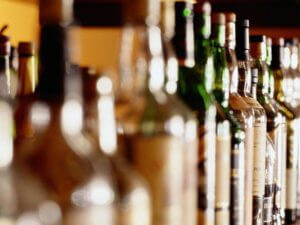
Growth of sales under the Affordable Medicines program that reimburses the cost of medicines has suspended, and pharmaceutical manufacturers are waiting for the expansion of the list of diseases under the program, Marketing and Sales Director at PJSC Farmak Susana Khalilova has said. “As for the Affordable Medicines program, it seems that the further quantitative growth in sales of medicines has stopped. A fuss about it has fallen. A more or less clear number of patients has been formed,” she said in an interview with Interfax-Ukraine. She said that “it was simply a “madhouse” at the beginning of the Affordable Medicines program – pharma companies could not guess the necessary number of medicines.”
“A year has passed and we understand approximately how many and what preparations are needed. Patients calmed down a bit and do not buy two or three packages to have them for the future. It took time to establish the process,” she said.
According to Khalilova, the Ministry of Health had to calculate the number of medicines required for participation in the program. “If the state at the very beginning have said how much money it would spend on a certain molecule or announced the approximate consumption of the concrete drug, it would have been much easier,” she said. In addition, Khalilova said that Farmak receives information on cases of a lack of budget funds for the Affordable Medicines program.
Farmak is a member of the Association Manufacturers of Medications of Ukraine (AMMU).

The Ukrainian media Internet advertising market expands by 32% in H1 2018, to UAH 1.094 billion, the Ukrainian Internet Association (UIA) has said. The share of direct sales on this market over the period came to 56.13%. The largest segment of media Internet advertising was banner advertising, which occupies 42.28% of the market. In-stream video (pre-roll, mid-roll, post-roll, pause-roll, overlay-advertisement, picture-in-pause) was – 34.94%, in-page video advertising (content-roll) – 8.18%, other non-standard solutions (pop-up and pop-up pop-ups, catfish and screen-glide formats, synchronous banners, frontlines, full-screen advertising, sound advertisement in a digital audio stream and other types) – 8.71% and sponsorship – 5.89%.
The share of mobile media Internet advertising (targeted at mobile device users) of the total turnover of media Internet advertising was the following: 18.2% for banner advertising, 10.1% for in-stream video, 0.5% for in-page video (content-roll), 0.6% – for non-standard solutions and 0.9% fell on sponsorship.
The share of Programmatic (automated advertising) was 26.23% for purchases by agencies and 53.02% for platforms.
The share of social media and instant messengers (FB, Instagram, Twitter, YouTube, Skype, Viber and other applications) was also determined in advertising – 25.1%.
The methodology for measuring the volume of media Internet advertising was based on a cross-sectional analysis of survey data from the largest advertising agencies, websites and sales houses.
“The survey involved leading online advertising agencies: Dentsu Aegis Network Ukraine, ADV Group Ukraine, ITCG, IPlace, Qreachers, Publicis Groupe Media, TMGU, AdWork, Dievo, MediaHead, Neos, Promodo, newage, WebPromo, SeoMarket and representatives of the largest sites, holdings and sales-houses: Autocentre, Edipress, Lux (24 channel), RBC, RIA, Ukr.net, UMH/Digimedia, Admixer, DMDim/Go2Net, FISH, DigitalDecisions, Adwise, T-Sell, Rontar, All.biz, Online.ua, Novoye Vremia, RST and Obozrevatel,” the association said.

Bayadera Group, one of the largest alcohol groups in the Ukrainian market, in September plans to supply a first batch of alcohol to Canada. According to the group’s press release on Tuesday, the Liquor Control Board of Ontario (LCBO) made an official order for the trademarks Hlibny Dar, Hlibny Dar Craft, Kozak and Rada. The contract for the supply of Bayadera Group’s products is signed with Caalco Distributors Corporation. “Opening the Canadian market for us is a huge credit of trust from our Canadian partners. Vodka there remains the most popular alcoholic beverage with a share of about 20%, with annual sales of more than CAD 1.3 billion. It is logical that this is a large and promising market and we long went to becoming its full player,” Director of Export Sales at Bayadera Group Kostiantyn Pylypchuk said.
According to the company, Canada is in the top ten of the world’s largest importing countries and consumers of vodka. At the same time, contrary to the worldwide trend of reducing the share of imported vodka in most countries due to an increase in domestic production, in Canada the volume of vodka imports increased by 5% last year. The right to sell alcohol in Canada belongs to the state, therefore the procedure for monitoring and obtaining permits is complicated.
Bayadera Group was established in 1991. Its owners are Natalia Bondareva and Sviatoslav Nechytailo. The company unites profile assets in the alcohol industry: distribution companies and its own production of alcoholic drinks in Ukraine and Belarus, wine, vermouth and cognac, and is the exclusive importer of world alcohol brands in Ukraine.

Batkivshchyna Party leader Yulia Tymoshenko leads the pack of presidential candidates, according to the results of a poll conducted by the Rating sociological group from July 20 through August 3, 2018. When asked who respondents would vote for in the event of presidential elections next Sunday, 17.7% of those who will take part in the vote named Tymoshenko. She was followed by the leader of Civil Position Party Anatoliy Hrytsenko with 10.7%, Opposition Bloc leader Yuriy Boiko with 8.9%, Radical Party leader Oleh Liashko with 8.5% and incumbent Ukrainian President Petro Poroshenko with 8.3%.
Some 8% of respondents said they would vote of Servant of the People Party leader Volodymyr Zelensky and musician Svyatoslav Vakarchuk each, and 5.9% for “For Life” Party leader Vadym Rabinovych. The rating of other candidates is less than 3%. Almost one in five did not decide.
According to the results of the poll, Tymoshenko has strong electoral positions in all macro regions, with relatively higher indicators in the western, central and southern regions of the country. The main electoral base of Hrytsenko is more concentrated in the western and central regions, while Poroshenko is supported more or less evenly in all macro regions, with the exception of eastern regions. Liashko is more supported in southern and central regions of the country, and Vakarchuk in western regions. Supporters of Boiko, Rabinovych and Zelensky are concentrated in eastern and southern regions.
Poroshenko continues to lead in the anti-rating category, with 50.4% of respondents saying they would not vote for him under any circumstances. He is followed by Tymoshenko, Liashko and Arseniy Yatsenyuk, who would not be supported in any case by 26-29% of those polled.
Some 16% of respondents believe that the next president will be Tymoshenko, 12.7% see Poroshenko as their president, 6.7% – Boiko, 4.7% – Zelensky, 3.7% – Liashko, 3.4% – Hrytsenko, 2.9% – Vakarchuk and 1.9% – Rabinovych. Almost 40% of respondents could not predict who will be the next president of the country.
From 45% to 65% of respondents said they know little what the leading presidential candidates plan to do once in office.
There is a relatively higher level of awareness among respondents of the plans of Tymoshenko (46%). Fewer know about the initiatives of Liashko (39%) and Poroshenko (36%). Almost 60% of respondents do not know anything about the plans of Boiko and Hrytsenko. Two thirds of the respondents know nothing about the plans of Zelensky and Vakarchuk.
Almost half of those polled said they would definitely vote in the presidential elections, one in five more likely than not.
The survey was conducted by the Rating sociological group from July 20 to August 3, 2018. The study covered the entire adult population of Ukraine using a representative sample based on age, gender, region and type of residence. Some 2,000 persons took part. The survey’s margin of error is no more than 2.2%.

5 countries control over half of all goods imports to Ukraine. Foreign trade operations were conducted with partners from 210 countries, but Russia, China, Germany, Poland, Belarus are in top-5 among other exporters of goods to Ukraine.
According to the statistical data, Russia is the first exporter of its good to Ukraine with 14,8% of all trade volume, the second is China (12,1%). The USA is the 6-th exporter to Ukraine, the UK is on the 13-th place.
The deficit of Ukraine’s foreign trade in goods in January-May 2018 increased by 1.4 times compared with January-May 2017 and amounted to $2.055 billion, the State Statistics Service has said. According to its data, in May the deficit was $632 million, while in April some $221.6 million, in March $460 million, in February $457 million, and in January $284.1 million. In January-May 2018 exports of goods compared to January-May 2017 increased by 12.9%, amounting to $19.460 billion, imports by 15.3%, to $21.515 billion.
In May 2018 compared to the previous month, the seasonally adjusted export volumes decreased by 5.8%, imports by 13.4%. The seasonally adjusted foreign trade balance in May 2018 was negative and amounted to $946.5 million, negative indicators were also fixed in April 2018 at $570.8 million, in March at $508.2 million, in February at $411.8 million, and January at $580.5 million.
The ratio of coverage of imports by exports was 0.9.
Foreign trade operations were conducted with partners from 210 countries, a share of top-20 importers to Ukraine is more than 75% of a total volume.
